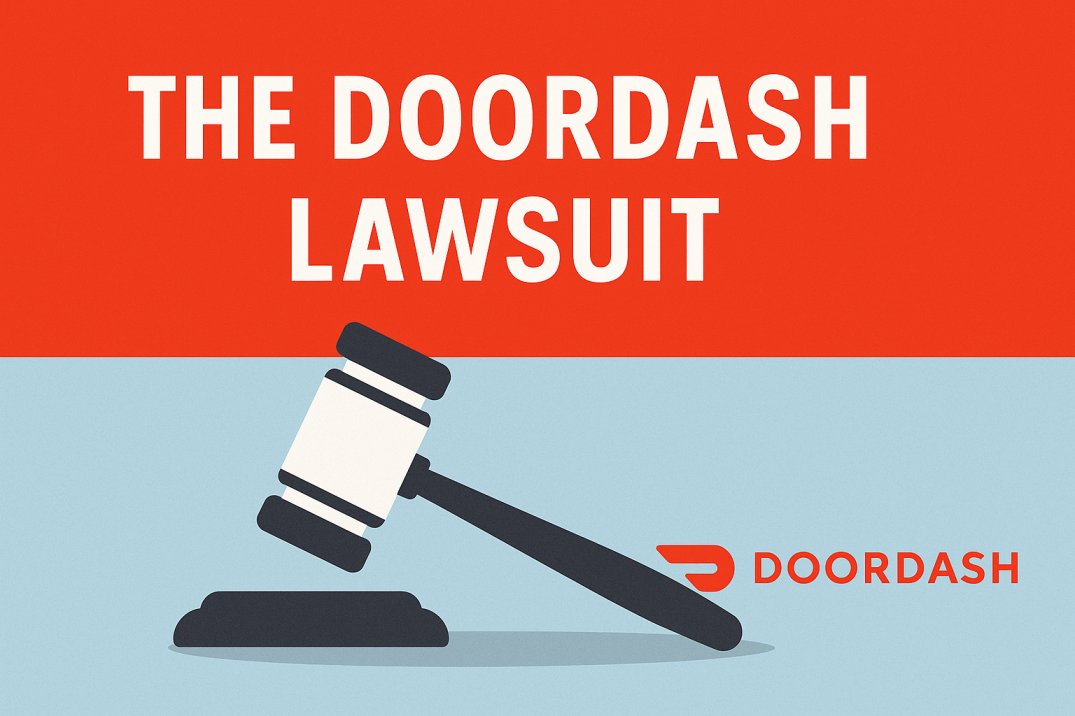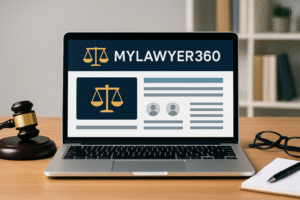DoorDash now faces a major legal challenge. A group of delivery drivers has filed a lawsuit against the company. They claim DoorDash avoids giving them basic worker rights. These include overtime pay reimbursement for gas and repair and access to health benefit.
The case put a spotlight on how gig companies treat their worker. Drivers use their own vehicles. They cover their own expenses. They follow the rules set by the app. Yet DoorDash calls them independent contractors.
This legal case questions that label. It asks whether DoorDash drivers should be classified as employees. If the court agrees, the outcome could change the rules across the entire gig economy.
The lawsuit also forces people to think about what fairness means in the digital job world. The old ways of defining work no longer fit. The gig economy moves fast. Laws have not kept up. This case may push lawmakers to act.
DoorDash now stands at the center of a growing debate. Worker rights and company profits are clashing. The result could shape the future of millions who rely on gig work to earn a living.
What Is the DoorDash Lawsuit About?
Drivers say DoorDash labels them as independent contractors. This lets the company avoid paying overtime, health insurance, and other benefits. It also skips fuel and repair compensation.
Many drivers claim they earn less than minimum wage after covering all costs. That forms the core of the lawsuit. DoorDash, they argue, cuts corners and shifts the burden to workers.
Misclassifying Workers Hurts More Than Just Drivers
DoorDash gains a clear advantage through worker misclassification. The company avoids payroll taxes, health insurance, and other employee costs. That saves money and boosts profit.
But this strategy comes at a cost. Drivers lose basic protections. They pay for fuel, vehicle repairs, and more—out of pocket. They have no paid leave. No unemployment support. No job security.
The impact goes beyond individual workers. Governments lose billions in tax revenue. That money would normally fund schools, roads, and healthcare. When big companies skip their share, the burden shifts to others.
This issue affects the entire economy. It creates unfair competition. It leaves honest businesses at a disadvantage. It weakens public services that everyone relies on.
Misclassification may seem like a business tactic but it damage trust. It send the message that profit matter more than people. That cannot be the future of work.
The Gig Economy Faces a Crossroads
Gig companies call their workers “independent” to promote flexibility. Drivers choose their hours and shifts. That sounds like freedom.But reality tells a different story. The app controls pricing. Drivers depend on the platform for income. They cannot build a client base or set their own terms.That looks more like a job than freelance work. The lawsuit highlights this gap.
Courts May Set the Rules
DoorDash is not the only company under pressure. Other major gig platforms also face lawsuits. Drivers across the country are raising their voices. They want fair pay, benefits, and job security.
Courts have started to respond. Judges are now reviewing how these platforms operate. They are asking tough questions. Are these workers truly independent? Or are they employees in disguise?
If the court rules against DoorDash, the change could be huge. The company may need to reclassify drivers as employees. That would force DoorDash to provide benefits, job protection, and fair wages.
Other companies will take notice. A single verdict could push the entire industry in a new direction. The way gig platforms hire and manage workers could shift overnight.
This case may become a turning point. The courts could create the rules that lawmakers have not. That would change the gig economy for years to come.
New Rules Are Urgently Needed
The law has not kept up with the way people work today. Gig platforms like DoorDash operate under outdated labor rules. This creates confusion. Workers are left in a gray zone with no clear rights.
Drivers carry the risks. They cover their own costs. They have no access to paid leave or health coverage. When problems arise, they have little support.
Lawmakers must step in. Drivers need protection. Companies need clear guidelines. The system cannot stay this way.
Regulations should reflect today’s work model. They must offer real safeguards without blocking growth. That means setting rules that help workers and still allow companies to run flexible platforms.
The goal is not to stop progress. The goal is to make sure progress works for everyone. Without fair rules, the gig economy will keep drifting into deeper problems.
What This Means for Drivers
A win in court could change everything for DoorDash drivers. They may receive higher pay. They may get paid for overtime. They could also gain access to health insurance and other benefits.
These changes would bring more stability. Many drivers rely on gig work as their main income. Right now, they cover fuel, car repairs, and other costs alone. A legal shift could move some of that burden back to the company.
At the same time, companies might react. DoorDash could reduce available shifts. It might raise service fees or lower driver numbers to save money. Some cities may even lose access to the platform.
Still, basic rights should not depend on company profits. Drivers play a key role in this system. They keep the business running. They deliver in all weather, at all hours.
They deserve fair treatment. Like every other worker they deserve protection respect and a voice. This lawsuit gives them a chance to get all three.
Final Thoughts
The DoorDash lawsuit sends a clear message. Workers are no longer staying silent. They want fair pay, proper benefits, and protection on the job. These demands are not extreme. They are basic.
Companies like DoorDash want to keep their platforms flexible. They argue that the gig model gives people freedom. That may be true. But freedom without fairness leads to abuse.
Both sides can win. Workers can have rights. Companies can still grow. The system just needs clear rules. Right now, those rules are missing.
If lawmakers stay quiet, the problem will grow. More lawsuits will follow. More drivers will suffer. More companies will face risk.
The gig economy is not going away. People will keep using these services. Drivers will keep looking for income. But growth must not come at the cost of human dignity.
It is time to fix the system. The future of work depends on it.
Muhammad Suleman Ahmad is a content writer covering lawsuits, legal explainers, and court-related topics for LawsuitDeck.com. His work is structured for clarity and general understanding.


